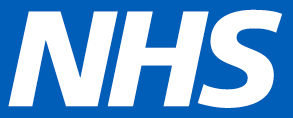
The Connecting Care Programme provides a new way to safely share agreed social care information and documents digitally from local authorities for vulnerable children and adults.
Challenge
Traditionally, care is carried out by different organisations and recorded on multiple IT systems. Providing access to information often requires multiple logins, and access to all the IT systems may not be able to be arranged.
Individuals and families ‘travel’ across the geographical boundaries of services. At the point of assessment or service delivery, staff:
- may not have all the information they need
- contend with time delays searching for/providing information
- are unaware of the whole picture
- are unable to fully understand risk
Prior to this work, social care information and documents were shared by traditional methods – in meetings, by paper and by phone and email.
To safely share agreed social care information and documents from local authorities for vulnerable children and adults, we aimed to:
- close gaps between social care and other care settings, through sharing adult and children’s information and documents, including social care assessments, reviews, plans, safeguarding documents and telehealth assessments for viewing by appropriately authorised health and care professional roles.
- help prevent safeguarding incidents and reduce risk when social care information is not appropriately shared with multi-disciplinary teams.
- support better care planning including integrated care plans for children and adults, including those with long-term conditions and complex needs.
This work, increasing social care digital maturity, received support from the NHS England ‘Connecting Care Records Programme’.

What we did
We held workshops to agree what information and documents would be shared, and to instil confidence that sharing with all appropriately authorised care professionals digitally would modernise and improve our services.
The local authorities collaborated, agreeing which social care documents would be shared across all three councils involved. They transformed existing social care processes so that the same information from each data controller was agreed and provided.
IT and digital colleagues from the local authorities, with understanding of social care, across four different instances of social care IT systems, worked with NHS SCW and Orion Health to ensure the solution was standardised, and the interoperability specification agreed. The integration conforms to industry standards.
Information and documents were identified to support safeguarding, reduce risk and ‘release time to care’ by both health and social care staff. Staff would no longer need to spend time contacting health and care colleagues to obtain information. It would be viewed in the Connecting Care Shared Care Record.
Robust testing, with user stories and test cases, was undertaken by the NHS SCW team, IT suppliers, and social care and health end-users, culminating in signed-off user acceptance testing.
A joint lessons-learned session and detailed case study were produced to share best practice and help support future ‘document sharing’ work.
Activity
Digital Transformation
Increasing the availability of social care information in the Connecting Care Shared Care Record
Outcome
ICS and partner organisations can now view social care assessments, reviews and plans to find the information they need quickly, joining up data and services at a neighbourhood, place and ICS system level to improve care for individuals and families in the local population.
From our survey, 50% of front-line staff and care professionals saved time calling other organisations, 71% saved a call to a GP and 50% saved time and saw improvements in triage and analysis, demonstrating efficiency savings by releasing more time to care.
The project has contributed to the standardisation of data collected across the three local authorities and sharing of information via role-based access which has enabled better patient and population care.
The main benefits for the citizen/service users are:
- they tell their story once
- they receive safer and joined-up care
- they have a better experience with fewer duplications or delays
- they might be able to avoid hospital admittance
And for professionals improved allocation of resources/finances by:
- reducing duplication of services and care, taking into account other care providers
- reducing unnecessary hospital admissions for example where ambulance and hospital services are unaware of care already provided in the community
- increasing services’ productivity by reducing time spent searching for information or visiting people who have been admitted to hospital






